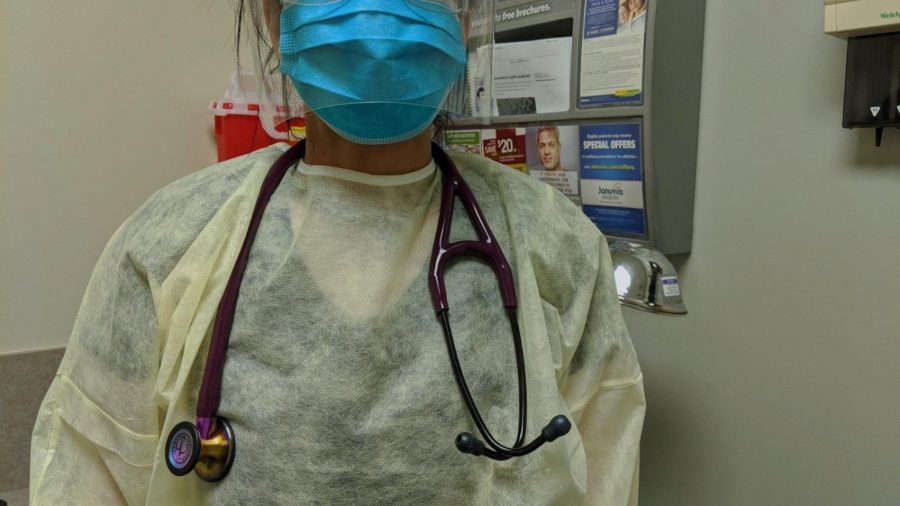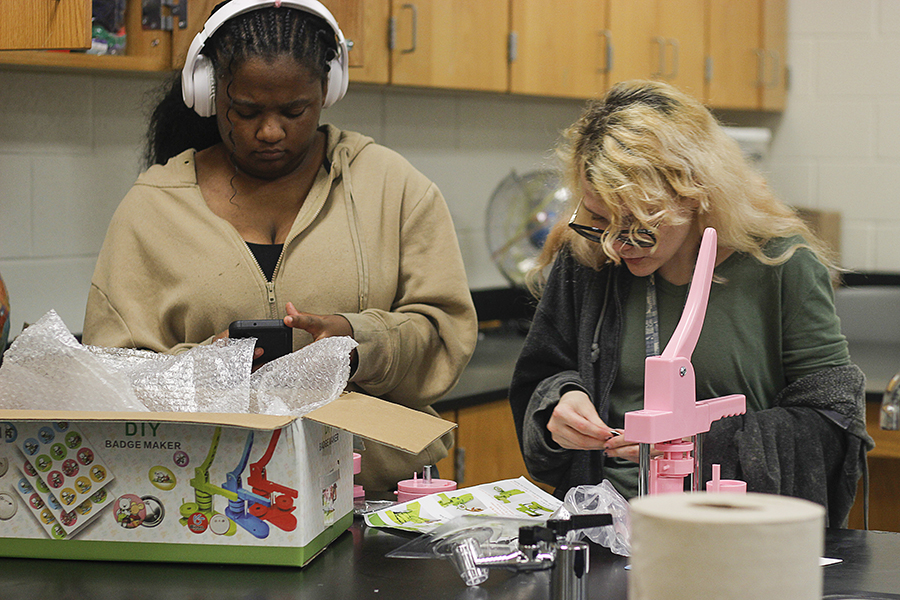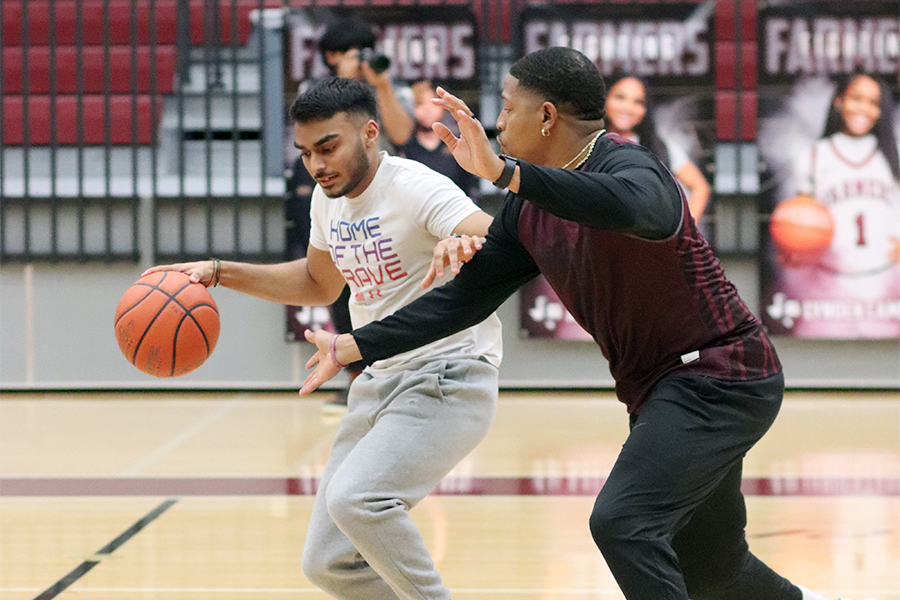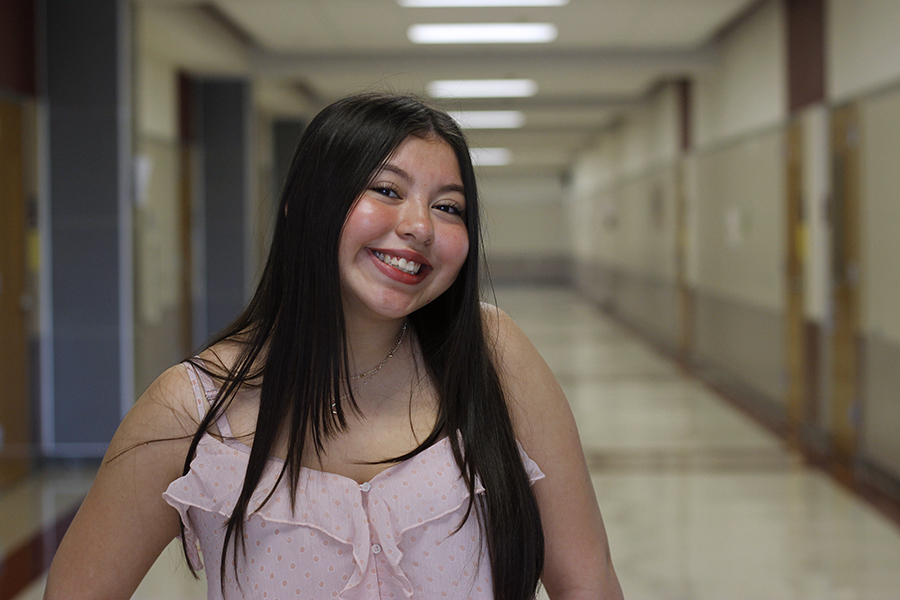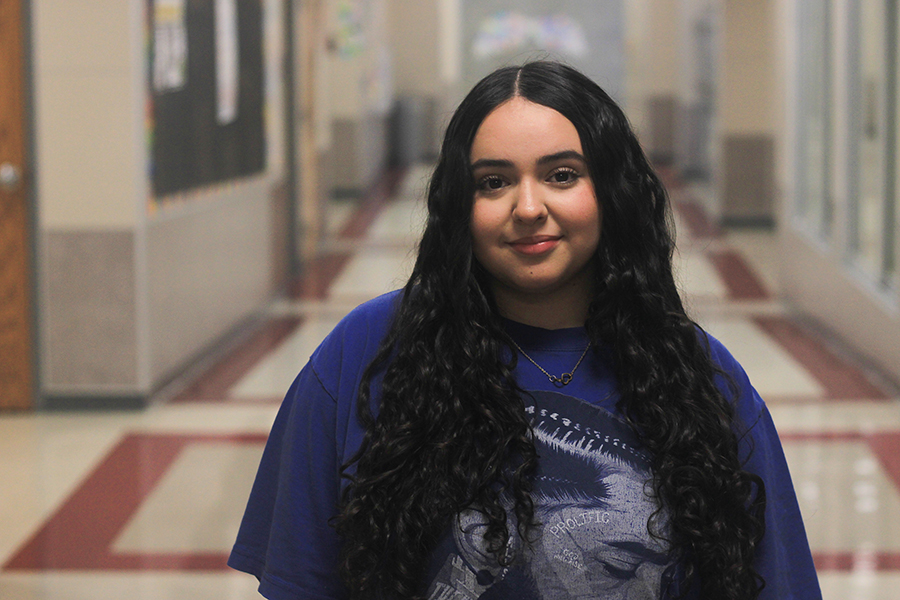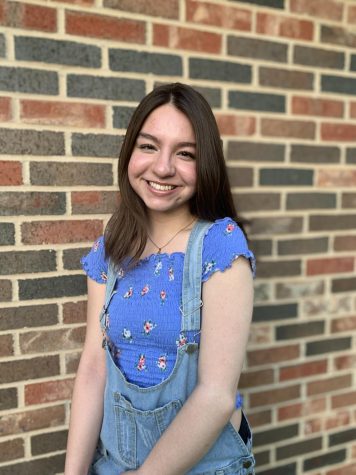COVID-19 has been the epitome of destruction for the past month. With a constant uncertainty surrounding the illness, life for individuals everywhere has come to a crashing halt. The virus, seeping itself into every aspect of life, has rendered countless people unemployed and students struggle to adapt to a new normal through online learning. In their perpetual fight against Coronavirus, medical professionals urge people to maintain the practice of social distancing and remain at home.
“As all other viruses, the SARS-CoV-2 needs a host to replicate,” family medicine specialist Monica Olivier said. “Since we know how it spreads, the quickest way to slow it down is to drastically limit contact. We all know by now [that] most people recover from this and the most vulnerable of the population is at the most severe risk. We all play a part in protecting every one of us in society through group effort.”
With concerns growing, people like English 2 teacher Patricia Jennings are beginning to understand the true gravity of the pandemic. Jennings tasks herself with making sure she and her family are following recommended protocols, as she realizes the actions they take now are detrimental for the future.
“At first, I thought it was a little bit of an overreaction,” Jennings said. “Once I saw how it was spreading, I thought, ‘OK, I can understand this.’ I was reading an article [and] it said that this moment, this time [period], will be remembered even five years from now. It is better to err on the side of caution than to have done nothing and to try to work backward and lose more people.”
Despite the quickly-escalating conditions and ever-growing safety precautions, a defiance to comply with preventative measures prevails. Teenagers and young adults are relying on their young age as a tactic for fighting off the virus. Doctors like Olivier warn against these misconceptions, informing people anyone could be at risk.
“Nobody has the luxury to think they are not the one that is going to be affected,” Olivier said. “You may not be the one who gets sick, but you are definitely going to be part of stopping the spread, saving lives and [enabling] society [to] get back to life as we know it.”
Moving forward has been difficult for students and teachers alike, as it is difficult to establish a sense of normalcy in the midst of a crisis. Plenty of students, like junior Alexis Hicks, however, are using their extensive time at home as an opportunity for self-improvement.
“I’ve never been able to do my schoolwork and then have the rest of the week to look at myself and be like, ‘Alright, well, what do you want to change?’” Hicks said. “[I ask myself] ‘Is there anything you want to improve on? Is there anything you want to work on?’ I think that’s [a] positive [aspect], because I actually have time now to work on myself and be the person who I’ve always wanted to be without any excuses.”
The virus shows no signs of stopping as infection and death tolls continue to rise. With lingering instabilities and no official preventative treatment, Olivier pleads those still unwilling to comply to take control by considering their actions and staying at home, as this is the only real solution in flattening the curve.
“Everything in life comes back full circle,” Olivier said. “Life lessons eventually will teach that to all of us. Following guidelines will help [not only] you, but also your friends, family, co-workers and the stranger standing next to you in line. It will help you get back to your job, school and life. It will help the economy get back on its feet. We all make a more impactful footprint in the world than we realize. Full circle.”


